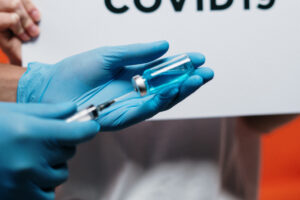Signs of Dehydration
What are the most common signs of dehydration? As summer is approaching, I want to reinforce the need for you to drink water continually. Carry it with you when you run to grocery store, at your desk at work, running a quick errand, and especially doing anything outdoors. Do not wait until you are thirsty.
Dehydration occurs when your body loses more fluids than it takes in. Recognizing the signs of dehydration is crucial, as it can lead to serious health complications if left untreated.
Here are some of the top signs of dehydration:
- Thirst: Feeling thirsty is one of the earliest indicators of dehydration. It serves as your body’s way of signaling that it needs more fluids.
- Dry mouth and lips: When you’re dehydrated, your mouth and lips may feel dry and sticky. You might also experience a lack of saliva production.
- Dark-colored urine: Dehydration can cause your urine to become concentrated and appear darker than usual. In a well-hydrated state, urine is typically light yellow or clear.
- Infrequent or reduced urination: If you’re not urinating as frequently as you normally do or if your urine output is significantly reduced, it may indicate dehydration.
- Fatigue and weakness: Dehydration can cause fatigue, lethargy, and a general feeling of weakness. Lack of adequate hydration can impact your energy levels and overall physical performance.
- Dizziness and lightheadedness: Insufficient fluid intake can lead to a drop in blood pressure, which may result in dizziness or lightheadedness.
- Headaches: Dehydration can trigger headaches and migraines in some individuals. This symptom is often accompanied by other signs of dehydration.
- Dry skin: When you’re dehydrated, your skin may lose moisture and become dry, tight, or less elastic. You may also notice increased wrinkling.
- Muscle cramps: Dehydration can cause muscle cramps, particularly during physical activity. Electrolyte imbalances resulting from fluid loss can contribute to muscle spasms.
- Rapid heartbeat and breathing: In severe cases of dehydration, your heart rate may increase, and you may experience rapid or shallow breathing.
It’s important to note that the severity of these symptoms can vary depending on the degree of dehydration. If you suspect you or someone else is dehydrated, it’s crucial to seek medical attention, especially if the symptoms are severe or persistent.
A product I carry with me is called E-lyte which is a clean (no added flavors, colors or sugar) electrolyte. One capful in each 8 oz glass of water is all you need to increase energy and hydration. Or when a liquid isn’t convenient, I use BodyHealth’s Perfect Aminos Electrolyte powder.
Fun Facts about the importance of water
- Vital for bodily functions: Water is essential for nearly all bodily functions. It helps regulate body temperature, aids in digestion, carries nutrients to cells, and removes waste products.
- Major component of the human body: Approximately 60% of the human adult body is composed of water. It is involved in the composition of cells, tissues, and organs.
- Maintains hydration: Drinking an adequate amount of water helps maintain proper hydration, which is crucial for overall health and well-being. It helps replenish the water lost through activities like sweating and urination.
- Promotes healthy skin: Staying hydrated can contribute to healthier and more radiant skin. It helps maintain the skin’s moisture, improves elasticity, and reduces the appearance of wrinkles.
- Supports weight management: Drinking water can be beneficial for weight management. It has no calories, can help reduce appetite when consumed before meals, and can replace high-calorie sugary drinks.
- Boosts energy levels: Dehydration can lead to fatigue and decreased energy levels. By staying properly hydrated, you can enhance your energy and physical performance.
- Aids in exercise performance: Drinking water before, during, and after exercise is vital for maintaining hydration and preventing dehydration. It helps regulate body temperature and supports optimal muscle function.
- Facilitates cognitive function: Proper hydration is essential for optimal brain function. Even mild dehydration can impair cognitive performance, including concentration, memory, and mood.
- Supports kidney function: Adequate water intake is crucial for proper kidney function. It helps remove waste products and toxins from the body through urine.
- Can prevent headaches: Dehydration can trigger headaches and migraines in some individuals. Drinking enough water can help prevent or alleviate these symptoms.
Remember, individual water needs can vary depending on factors such as age, activity level, climate, and overall health. Therefore, it’s important to listen to your body’s signals and ensure you drink enough water to stay properly hydrated throughout the day. Next, I’ll share why the body signals are so important to pay attention to.
Body tissues and organs comprised mostly of water
The human body is composed of varying percentages of water, depending on the organ or tissue. Here are approximate water percentages for some organs and tissues:
- Brain: The brain is composed of about 75% water.
- Heart: The heart is composed of approximately 73% water.
- Lungs: The lungs consist of around 83% water.
- Muscles: Muscles are made up of roughly 75% water.
- Kidneys: The kidneys are composed of about 79% water.
- Liver: The liver consists of approximately 71% water.
- Skin: The skin contains about 64% water.
- Bones: Although bones are not primarily composed of water, they still contain a small percentage. Bone tissue typically consists of around 31% water.
In conclusion, your body requires water to function. Unfortunately, excess caffeine, carbonated or sugar-laden drinks will dehydrate. If you are looking for scientific ways to determine hydration, consider the Digestive Health Test.





